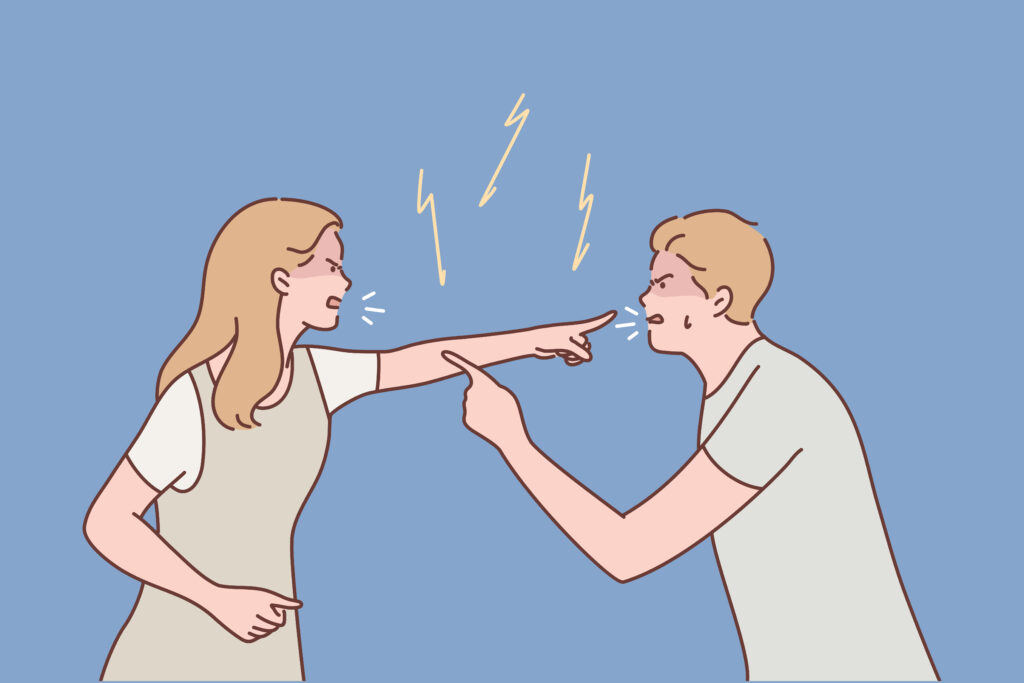Communication is the cornerstone of any healthy relationship, but it is especially important in long-term relationships. It is the means by which partners connect, share, and understand one another. A lack of effective communication can lead to problems and cause a relationship to deteriorate, while strong communication skills can create a strong, satisfying bond. This article will explore the importance of communication in long-term relationships.
Types Of Communication
Verbal communication, nonverbal communication, and active listening are all important types of communication in a long-term relationship. Verbal communication involves the use of words to express thoughts, feelings and ideas, while nonverbal communication is the use of body language, facial expressions, and tone of voice to convey meaning. Active listening is a skill that involves paying full attention to what the other person is saying, without interruption or distraction. Each type of communication plays a vital role in maintaining a healthy relationship.
Verbal communication is essential for sharing information, making plans, and solving problems. Nonverbal communication, such as facial expressions and body language, can provide insight into a partner’s thoughts and feelings, and active listening can improve the ability to understand and empathize with one another.
Communication And Conflict Resolution

Effective communication is one of the key factors in preventing and resolving conflicts in a long-term relationship. When partners are able to express themselves clearly, listen actively, and respond in an understanding manner, conflicts can often be resolved quickly and constructively. However, poor communication can lead to misunderstandings and escalate conflicts, causing damage to the relationship.
One of the most important ways to prevent conflicts is by encouraging open and honest communication. Partners should feel free to express their thoughts, feelings and ideas without fear of judgment or retaliation. This allows for an open dialogue where both partners can share their perspectives and find a solution that works for both of them.
Active listening is another crucial aspect of effective conflict resolution through communication. It’s about paying full attention to what your partner is saying, without interruption or distraction. This helps to understand your partner’s point of view, and show empathy and understanding. When both partners feel heard and understood, it’s easier to find common ground and reach a resolution.
In resolving conflicts, it’s important to avoid blame and criticism and instead use “I” statements to express your thoughts and feelings. This helps to focus on the problem, rather than attacking the person. Both partners should take responsibility for their actions and be willing to apologize when needed. This shows a willingness to take responsibility and work together to resolve conflicts.
Another crucial part of conflict resolution is compromise. Compromise helps partners to find a solution that works for both of them. It requires flexibility, adaptability, and a willingness to see things from different perspectives. When compromise is achieved, both partners feel like they have been heard, and their needs have been met.
Communication And Intimacy
Communication is also an essential ingredient in maintaining intimacy in a long-term relationship. Open and honest communication can lead to a deeper emotional connection and understanding between partners, while poor communication can lead to emotional distance and distance between partners. Good communication promotes intimacy and helps maintain a strong emotional bond between partners.
Tips for improving communication for greater intimacy:
- Encourage open and honest communication
- Share your thoughts and feelings with your partner
- Practice active listening
- Show empathy and understanding
- Show appreciation and gratitude for your partner.
Communication And Trust

Trust is an essential element in any long-term relationship, and communication is a key factor in building and maintaining trust. Clear and open communication can help partners understand one another, resolve conflicts, and build a stronger emotional bond. Without trust, a relationship can feel unstable and insecure.
Effective communication is one of the key ways to build trust in a long-term relationship. When partners are open and honest with one another, they feel more secure and reassured in the relationship. Honesty and transparency in communication creates an environment of trust, allowing both partners to feel comfortable and safe being vulnerable with each other.
Active listening is also an important aspect of building trust through communication. When partners take the time to listen to one another and understand each other’s thoughts and feelings, it creates a deeper emotional connection and promotes trust. Showing empathy and understanding in communication, helps to create a sense of mutual support and validation in the relationship.
Consistency and reliability are also important in building trust through communication. When partners are consistent in their actions and words, it shows that they can be counted on and trusted. Keeping promises and fulfilling commitments helps to build trust and reassurance in the relationship.
On the other hand, poor communication can lead to a breakdown in trust. If partners are not open, honest, or consistent in their communication, it can create feelings of insecurity and uncertainty. Additionally, when partners avoid or evade communication, it can create feelings of mistrust and make the relationship feel unstable.
Conclusion
In summary, communication is an essential aspect of a long-term relationship. It enables partners to connect, share, and understand one another. Good communication can help prevent and resolve conflicts, maintain intimacy and build trust. Conversely, poor communication can lead to distance, misunderstandings, and relationship problems. Improving communication skills can lead to a stronger, more satisfying long-term relationship. It’s essential to be open, honest, and to communicate effectively to have a healthy long-term relationship.


